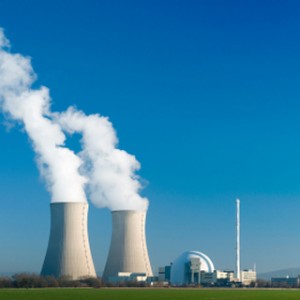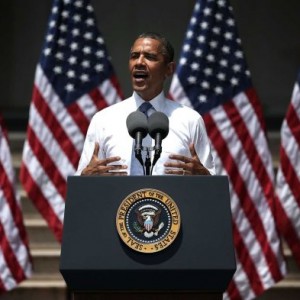23 item(s) were returned.
Member
U.S. House of Representatives
Two of the most pressing issues facing us today are the need to address the economic costs and public health risks associated with climate change and strengthening the middle class. Over 97 percent of climate scientists agree that our planet is warming, primarily as a result of fossil fuel combustion, and that this warming is already causing more frequent, dangerous, and expensive extreme weather events. At the same time, our middle class is struggling. While the productivity of our economy increased by 75 percent between 1979 and 2012, wage growth for middle class workers increased by only 5 percent during… [more]
View InsightMember
U.S. House of Representatives
As Chairman of the House Subcommittee on Energy and Power, I’m continuing the fight against President Obama’s Environmental Protection Agency’s (EPA) overregulation of our nation’s power plants without any regard to the consequences for our economy and consumers. This week, the EPA is expected to release its proposed rule regulating carbon dioxide emissions from existing and modified electricity power plants. This effort is certain to result in a de facto cap and trade program, which Congress most recently rejected in 2009. This regulation follows the proposed rule on new power plants, which essentially makes it illegal to build a power… [more]
View InsightDirector, Energy Project
Bipartisan Policy Center
The Bipartisan Policy Center’s (BPC) Energy Project seeks your input as part of a yearlong effort aimed at fostering constructive dialogue and action on reforming the Renewable Fuel Standard (RFS). BPC commissioned a series of background papers on various RFS topics. The last three papers, summarized below, approach the RFS from the perspectives of policy and law, considering both the Environmental Protection Agency’s authority as well as broader federal regulations. Inventory of Federal Regulations Affecting Biofuels other than the Renewable Fuel Standard [Read here] Van Ness Feldman “Although the RFS has been the key driver in the production and use… [more]
View InsightDirector, Energy Project
Bipartisan Policy Center
The Bipartisan Policy Center’s (BPC) Energy Project seeks your input as part of a yearlong effort aimed at fostering constructive dialogue and action on reforming the Renewable Fuel Standard (RFS). BPC commissioned a series of background papers on various RFS topics. The first two papers, summarized below, approach the RFS from the standpoint of technology and infrastructure, considering both vehicles and the fuels supply chain. Technical Barriers to the Consumption of Higher Blends of Ethanol [Read here] The International Council on Clean Transportation “Taking all of these studies together, we conclude that vehicles model year 2001 or later can safely… [more]
View InsightThe U.S. Environmental Protection Agency (EPA) released draft rules on September 20th, to limit carbon emissions from new coal power plants. The proposed rules are part of President Obama’s broader Climate Action Plan aimed at combating climate change and improving public health, according to the EPA. Under the rules, new coal-fired power plants would be limited to 1,100 pounds of CO2 per megawatt-hour, or could opt to meet stricter average emissions limits that grant additional operational flexibility. The rules also would require new plants to implement partial carbon capture and storage (CCS) technology. Critics of the proposed rules argue that… [more]
View InsightPresident
Kadak Associates, Inc.
The availability of cheap natural gas in the United States has stalled the construction of new nuclear plants. While four new nuclear plants are under construction in the US, many of the proposed 15 – 20 new plants were put on “hold” pending either an increase in electricity demand or increase in the price of natural gas. However, nuclear remains the largest source of emissions-free power in the U.S. at 19% of total electricity generation. The question posed for this dialogue is whether there is a justifiable reason to build new nuclear plants to provide base load power, despite the… [more]
View InsightDirector, Stakeholder Relations/External Affairs
Brookhaven National Laboratory
Keystone XL has been called the world’s best known pipeline that has not been built. Controversy over the pipeline itself has largely subsided but this project linking the oil sands of Northern Alberta to the large refineries of the Gulf Coast has become a rallying point for an “off oil” campaign. A presidential permit for import facilities is the sole remaining requirement before construction can begin. KXL would be the 82nd major pipeline in the US, and is the safest and most technologically advanced. It would provide diluted bitumen from Alberta’s oil sands and Bakken crude from Montana and North Dakota to… [more]
View InsightPublic Utilities Regulatory Analyst
California Public Utilities Commission
The state of California is faced with the challenge of reaching its carbon emissions reduction and renewable portfolio standard goals while maintaining the safety and reliability of the electric supply and protecting the economic interests of the ratepayers. In addition to AB 32, which calls for reducing greenhouse gas emissions to 1990 levels by 2020, the state also has a Renewable Portfolio Standard goal of 33% renewables by 2020. The California Public Utilities Commission (CPUC), the California Independent System Operator (CAISO) and many stakeholders have been working on policies, technologies and market mechanisms to reach these goals. Managing the effect… [more]
View InsightCo-Executive Director
The Institute for Carbon Removal Law and Policy, American University
The European Union’s Emissions Trading System (EU-ETS) is an extremely important component of global climate policymaking. It represents more than 80% of the global market value of emissions trading permits and serves as the cornerstone of the EU’s response to climate change. Moreover, a number of other States and sub-national actors, such as California – which has the second largest carbon trading program in the world – have either linked their emissions trading systems to the EU-ETS, or contemplate doing so in the future. However, with the price of allowances plummeting a startling 83% from 2008-2013 the EU-ETS is abjectly… [more]
View InsightPresident
Micro-Utilities, Inc.
The President was on target during his speech on climate change at Georgetown University when he announced new initiatives to curb the release of greenhouse gases and thereby slow down the effects of climate change. However, a key aspect to meeting this huge challenge is to set national goals based on specific timetables. Without President Kennedy setting a goal to land an American on the moon by a specific date, it is doubtful that we would have ever achieved this. President Obama’s goal-setting in his recent speech was incomplete and rather imbalanced. There was a goal to double renewable energy… [more]
View Insight






